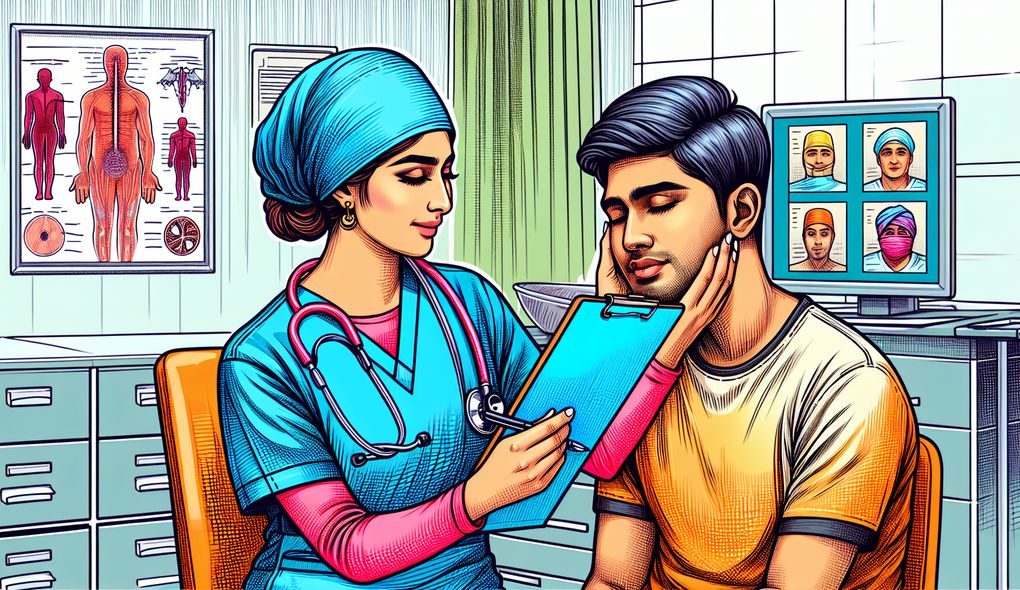What is your approach in dealing with a patient who is non-compliant with the prescribed pain management plan?
SENIOR LEVEL

Sample answer to the question:
I think a nurse's most valuable tool is their communication skills. When a patient is non-compliant, my first step is always to talk to them. Maybe they don't fully understand the plan, or maybe they have concerns or fears that haven't been addressed. Helping the patient understand why the pain management plan was prescribed and what it can do for them is important. If after discussing, they're still resistant, I would consider alternatives that might be more agreeable to them, always seeking guidance from the medical team and using my professional judgement.
Here is a more solid answer:
In a scenario where a patient isn't following the prescribed pain management plan, my first step would be to sit down with them and try to understand the reason behind their non-compliance. Are they experiencing side effects? Is the regimen too complex? Or could it be that they're afraid of becoming reliant on medication? I would approach them empathetically, ensuring they feel comfortable to express their concerns. After understanding their reasons, I would work with the multidisciplinary team to assess if modifications to the plan would be beneficial, taking into account their concerns and the intensity of their pain. It's critical to educate the patient and their family about the importance of following the plan and the possible consequences of non-compliance too. Throughout this, I would ensure to document each step of the process - from understanding the patient's reasons to modifying the plan and their response.
Why is this a more solid answer?
This response is more comprehensive as it outlines a step-by-step approach with a clear demonstration of empathy, collaboration with a team, patient education, and documentation. However, there is room for discussing continuous reassessment of the patient and possible involvement of other healthcare professionals, which is standard in a multidisciplinary team approach.
An example of a exceptional answer:
When faced with a non-compliant patient, my approach is rooted in empathy, communication, and patient-centered care. To start, it's essential to truly hear their concerns. I'd facilitate an open dialogue where they feel heard and understood, addressing any misconceptions or fears about their pain management plan. I would endeavor to uncover potential barriers, such as side effects, perceived ineffectiveness, or fear of addiction. Armed with these insights, I would convene a meeting with the multidisciplinary healthcare team—highlighting to them the importance of having a patient-centric conversation rather than a 'compliance-driven' one. Together, we would reassess and possibly tweak the plan, incorporating pain-relief interventions that the patient finds tolerable and effective. Education, for both the patient and their family, would also be crucial—I aim to instill an understanding of the gravity of unmanaged pain and dispel myths surrounding pain medications. Lastly, staying diligent in documentation and ongoing monitoring of the patient's adherence and pain levels—regardless of their previous non-compliance—is a must. My goal is to ensure my patient feels heard, respected and involved in managing their pain, which I believe leads to better outcomes.
Why is this an exceptional answer?
This answer is exceptional because it provides a nuanced and comprehensive approach, demonstrating empathy, effective communication, interdisciplinary collaboration, and patient-centered care. There is also emphasis on education, reassessment, documentation, and ongoing monitoring. It gives a clear picture enforcing collaborative care, emphasizing the idea of treating a person's pain as a multidimensional issue and needing to address all facets for effective care.
How to prepare for this question:
- Review strategies and techniques for effectively communicating with patients and their families about sensitive topics like pain management. This will help in understanding them better and answering their queries or fears.
- Update your knowledge on ethical implications of non-compliance and how to manage difficult conversations around such issues. Understanding the legal standpoint helps carry such conversations smoothly.
- Research evidence-based strategies for adjusting pain management plans, both pharmacological and non-pharmacological approaches, as alternatives to treatment could come up.
- Prepare for team collaboration, as you might have to present your approach to a panel of multidisciplinary healthcare professionals.
- Practice and review steps for documenting patient interactions and treatment modifications accurately. Nothing should go undocumented in a healthcare setting.
What are interviewers evaluating with this question?
- Effective communication and education skills
- Ability to work collaboratively within a multidisciplinary team
- Empathy and compassionate care

